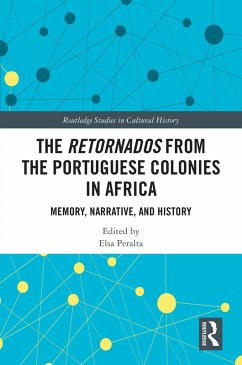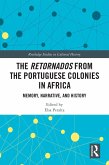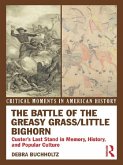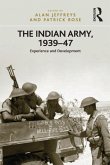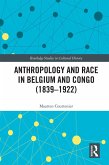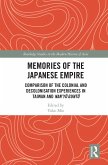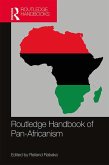The Retornados from the Portuguese Colonies in Africa (eBook, ePUB)
Memory, Narrative, and History
Redaktion: Peralta, Elsa
41,95 €
41,95 €
inkl. MwSt.
Sofort per Download lieferbar

21 °P sammeln
41,95 €
Als Download kaufen

41,95 €
inkl. MwSt.
Sofort per Download lieferbar

21 °P sammeln
Jetzt verschenken
Alle Infos zum eBook verschenken
41,95 €
inkl. MwSt.
Sofort per Download lieferbar
Alle Infos zum eBook verschenken

21 °P sammeln
The Retornados from the Portuguese Colonies in Africa (eBook, ePUB)
Memory, Narrative, and History
Redaktion: Peralta, Elsa
- Format: ePub
- Merkliste
- Auf die Merkliste
- Bewerten Bewerten
- Teilen
- Produkt teilen
- Produkterinnerung
- Produkterinnerung

Bitte loggen Sie sich zunächst in Ihr Kundenkonto ein oder registrieren Sie sich bei
bücher.de, um das eBook-Abo tolino select nutzen zu können.
Hier können Sie sich einloggen
Hier können Sie sich einloggen
Sie sind bereits eingeloggt. Klicken Sie auf 2. tolino select Abo, um fortzufahren.

Bitte loggen Sie sich zunächst in Ihr Kundenkonto ein oder registrieren Sie sich bei bücher.de, um das eBook-Abo tolino select nutzen zu können.
Placed in the wider scope of post-war European decolonisation migrations, The Retornados from the Portuguese Colonies in Africa looks at the "Return" of the Portuguese nationals living in the African colonies when they became independent.
- Geräte: eReader
- mit Kopierschutz
- eBook Hilfe
Andere Kunden interessierten sich auch für
![The Retornados from the Portuguese Colonies in Africa (eBook, PDF) The Retornados from the Portuguese Colonies in Africa (eBook, PDF)]() The Retornados from the Portuguese Colonies in Africa (eBook, PDF)41,95 €
The Retornados from the Portuguese Colonies in Africa (eBook, PDF)41,95 €![The Battle of the Greasy Grass/Little Bighorn (eBook, ePUB) The Battle of the Greasy Grass/Little Bighorn (eBook, ePUB)]() Debra BuchholtzThe Battle of the Greasy Grass/Little Bighorn (eBook, ePUB)38,95 €
Debra BuchholtzThe Battle of the Greasy Grass/Little Bighorn (eBook, ePUB)38,95 €![The Indian Army, 1939-47 (eBook, ePUB) The Indian Army, 1939-47 (eBook, ePUB)]() Patrick RoseThe Indian Army, 1939-47 (eBook, ePUB)46,95 €
Patrick RoseThe Indian Army, 1939-47 (eBook, ePUB)46,95 €![Anthropology and Race in Belgium and the Congo (1839-1922) (eBook, ePUB) Anthropology and Race in Belgium and the Congo (1839-1922) (eBook, ePUB)]() Maarten CouttenierAnthropology and Race in Belgium and the Congo (1839-1922) (eBook, ePUB)41,95 €
Maarten CouttenierAnthropology and Race in Belgium and the Congo (1839-1922) (eBook, ePUB)41,95 €![Memories of the Japanese Empire (eBook, ePUB) Memories of the Japanese Empire (eBook, ePUB)]() Memories of the Japanese Empire (eBook, ePUB)43,95 €
Memories of the Japanese Empire (eBook, ePUB)43,95 €![Routledge Handbook of Pan-Africanism (eBook, ePUB) Routledge Handbook of Pan-Africanism (eBook, ePUB)]() Routledge Handbook of Pan-Africanism (eBook, ePUB)48,95 €
Routledge Handbook of Pan-Africanism (eBook, ePUB)48,95 €![The Routledge History of Death since 1800 (eBook, ePUB) The Routledge History of Death since 1800 (eBook, ePUB)]() The Routledge History of Death since 1800 (eBook, ePUB)46,95 €
The Routledge History of Death since 1800 (eBook, ePUB)46,95 €-
-
-
Placed in the wider scope of post-war European decolonisation migrations, The Retornados from the Portuguese Colonies in Africa looks at the "Return" of the Portuguese nationals living in the African colonies when they became independent.
Dieser Download kann aus rechtlichen Gründen nur mit Rechnungsadresse in A, B, BG, CY, CZ, D, DK, EW, E, FIN, F, GR, HR, H, IRL, I, LT, L, LR, M, NL, PL, P, R, S, SLO, SK ausgeliefert werden.
Produktdetails
- Produktdetails
- Verlag: Taylor & Francis
- Seitenzahl: 442
- Erscheinungstermin: 9. September 2021
- Englisch
- ISBN-13: 9781000440638
- Artikelnr.: 62413007
- Verlag: Taylor & Francis
- Seitenzahl: 442
- Erscheinungstermin: 9. September 2021
- Englisch
- ISBN-13: 9781000440638
- Artikelnr.: 62413007
- Herstellerkennzeichnung Die Herstellerinformationen sind derzeit nicht verfügbar.
Elsa Peralta is a senior research fellow at the Centre for Comparative Studies (CEC), School of Arts & Humanities, University of Lisbon, Portugal.
Introduction; The history and memory of the Portuguese Return from Africa -
Elsa Peralta; PART I. NARRATIVES OF HISTORY AND MEMORY; Chapter 1 Traumatic
loss, successful integration. The agitated and the soothing memory of the
Return from Portugal's African empire - Christoph Kalter; Chapter 2 The
Jornal O Retornado's readers and the construction of a narrative of the
Return from Africa (1975-1976) - Morgane Delaunay; Chapter 3 Remembering
the Return: Personal narratives of paradox and bewilderment - Elsa Peralta;
Chapter 4 The retornados and their "roots" in Angola. A generational
perspective on the colonial past and the postcolonial present - Irène Dos
Santos; PART II. LITERATURE AND THE WORKINGS OF IMAGINATION; Chapter 5
Acoustic remains: Listening for colonialism and decolonisation in Isabela
Figueiredo's life-writing - Isabel A. Ferreira Gould; Chapter 6 The frizzy
hair of the retornados: "Race" and gender in literature on mixed-race
identities in Portugal -Doris Wieser; Chapter 7 The (des)retorno of
(bi)nationals: real and imagined experiences - Carolina Peixoto; Chapter 8
Retornadiana: The writing of the retornados and the memorialisation of the
Return in postcolonial Portugal - João Pedro George; PART III. MEDIA AND
CULTURAL MEMORY; Chapter 9 Historical reflexivity and artistic reflexivity.
The colonial society in the film Tabu and the naturalisation of the
settlers' gaze - Nuno Domingos; Chapter 10 Negotiating the end of the
Portuguese empire: The retornados' perspective in the TV series Depois do
Adeus - Teresa Pinheiro; Chapter 11 As Time Goes By. Portuguese retornados
and postcolonial melancholia - Marcos Cardão; Chapter 12 Connected colonial
nostalgia: content and interactions of the Retornados e Refugiados de
Angola Facebook group - Bruno Góis; PART IV. REWRITINGS AND ARTISTIC
APPROPRIATIONS; Chapter 13 Some of the children of it all. Reflections on
Children of the Return [ Filhos do Retorno] , a performance by Teatro do
Vestido: constructions, representations, memories and postmemories - Joana
Craveiro; Chapter 14 Rewriting recent Portuguese colonial history through
postcolonial documentary theatre - André Amálio; Chapter 15 My own
recollection of their lives: Visual narratives of an archival
reappropriation - Céline Gaille; Chapter 16 The retornado as archive of the
sensible in contemporary Portuguese artistic practices: between
transmemories, nostalgias and possible futures - Maria-Benedita Basto
Elsa Peralta; PART I. NARRATIVES OF HISTORY AND MEMORY; Chapter 1 Traumatic
loss, successful integration. The agitated and the soothing memory of the
Return from Portugal's African empire - Christoph Kalter; Chapter 2 The
Jornal O Retornado's readers and the construction of a narrative of the
Return from Africa (1975-1976) - Morgane Delaunay; Chapter 3 Remembering
the Return: Personal narratives of paradox and bewilderment - Elsa Peralta;
Chapter 4 The retornados and their "roots" in Angola. A generational
perspective on the colonial past and the postcolonial present - Irène Dos
Santos; PART II. LITERATURE AND THE WORKINGS OF IMAGINATION; Chapter 5
Acoustic remains: Listening for colonialism and decolonisation in Isabela
Figueiredo's life-writing - Isabel A. Ferreira Gould; Chapter 6 The frizzy
hair of the retornados: "Race" and gender in literature on mixed-race
identities in Portugal -Doris Wieser; Chapter 7 The (des)retorno of
(bi)nationals: real and imagined experiences - Carolina Peixoto; Chapter 8
Retornadiana: The writing of the retornados and the memorialisation of the
Return in postcolonial Portugal - João Pedro George; PART III. MEDIA AND
CULTURAL MEMORY; Chapter 9 Historical reflexivity and artistic reflexivity.
The colonial society in the film Tabu and the naturalisation of the
settlers' gaze - Nuno Domingos; Chapter 10 Negotiating the end of the
Portuguese empire: The retornados' perspective in the TV series Depois do
Adeus - Teresa Pinheiro; Chapter 11 As Time Goes By. Portuguese retornados
and postcolonial melancholia - Marcos Cardão; Chapter 12 Connected colonial
nostalgia: content and interactions of the Retornados e Refugiados de
Angola Facebook group - Bruno Góis; PART IV. REWRITINGS AND ARTISTIC
APPROPRIATIONS; Chapter 13 Some of the children of it all. Reflections on
Children of the Return [ Filhos do Retorno] , a performance by Teatro do
Vestido: constructions, representations, memories and postmemories - Joana
Craveiro; Chapter 14 Rewriting recent Portuguese colonial history through
postcolonial documentary theatre - André Amálio; Chapter 15 My own
recollection of their lives: Visual narratives of an archival
reappropriation - Céline Gaille; Chapter 16 The retornado as archive of the
sensible in contemporary Portuguese artistic practices: between
transmemories, nostalgias and possible futures - Maria-Benedita Basto
Introduction; The history and memory of the Portuguese Return from Africa -
Elsa Peralta; PART I. NARRATIVES OF HISTORY AND MEMORY; Chapter 1 Traumatic
loss, successful integration. The agitated and the soothing memory of the
Return from Portugal's African empire - Christoph Kalter; Chapter 2 The
Jornal O Retornado's readers and the construction of a narrative of the
Return from Africa (1975-1976) - Morgane Delaunay; Chapter 3 Remembering
the Return: Personal narratives of paradox and bewilderment - Elsa Peralta;
Chapter 4 The retornados and their "roots" in Angola. A generational
perspective on the colonial past and the postcolonial present - Irène Dos
Santos; PART II. LITERATURE AND THE WORKINGS OF IMAGINATION; Chapter 5
Acoustic remains: Listening for colonialism and decolonisation in Isabela
Figueiredo's life-writing - Isabel A. Ferreira Gould; Chapter 6 The frizzy
hair of the retornados: "Race" and gender in literature on mixed-race
identities in Portugal -Doris Wieser; Chapter 7 The (des)retorno of
(bi)nationals: real and imagined experiences - Carolina Peixoto; Chapter 8
Retornadiana: The writing of the retornados and the memorialisation of the
Return in postcolonial Portugal - João Pedro George; PART III. MEDIA AND
CULTURAL MEMORY; Chapter 9 Historical reflexivity and artistic reflexivity.
The colonial society in the film Tabu and the naturalisation of the
settlers' gaze - Nuno Domingos; Chapter 10 Negotiating the end of the
Portuguese empire: The retornados' perspective in the TV series Depois do
Adeus - Teresa Pinheiro; Chapter 11 As Time Goes By. Portuguese retornados
and postcolonial melancholia - Marcos Cardão; Chapter 12 Connected colonial
nostalgia: content and interactions of the Retornados e Refugiados de
Angola Facebook group - Bruno Góis; PART IV. REWRITINGS AND ARTISTIC
APPROPRIATIONS; Chapter 13 Some of the children of it all. Reflections on
Children of the Return [ Filhos do Retorno] , a performance by Teatro do
Vestido: constructions, representations, memories and postmemories - Joana
Craveiro; Chapter 14 Rewriting recent Portuguese colonial history through
postcolonial documentary theatre - André Amálio; Chapter 15 My own
recollection of their lives: Visual narratives of an archival
reappropriation - Céline Gaille; Chapter 16 The retornado as archive of the
sensible in contemporary Portuguese artistic practices: between
transmemories, nostalgias and possible futures - Maria-Benedita Basto
Elsa Peralta; PART I. NARRATIVES OF HISTORY AND MEMORY; Chapter 1 Traumatic
loss, successful integration. The agitated and the soothing memory of the
Return from Portugal's African empire - Christoph Kalter; Chapter 2 The
Jornal O Retornado's readers and the construction of a narrative of the
Return from Africa (1975-1976) - Morgane Delaunay; Chapter 3 Remembering
the Return: Personal narratives of paradox and bewilderment - Elsa Peralta;
Chapter 4 The retornados and their "roots" in Angola. A generational
perspective on the colonial past and the postcolonial present - Irène Dos
Santos; PART II. LITERATURE AND THE WORKINGS OF IMAGINATION; Chapter 5
Acoustic remains: Listening for colonialism and decolonisation in Isabela
Figueiredo's life-writing - Isabel A. Ferreira Gould; Chapter 6 The frizzy
hair of the retornados: "Race" and gender in literature on mixed-race
identities in Portugal -Doris Wieser; Chapter 7 The (des)retorno of
(bi)nationals: real and imagined experiences - Carolina Peixoto; Chapter 8
Retornadiana: The writing of the retornados and the memorialisation of the
Return in postcolonial Portugal - João Pedro George; PART III. MEDIA AND
CULTURAL MEMORY; Chapter 9 Historical reflexivity and artistic reflexivity.
The colonial society in the film Tabu and the naturalisation of the
settlers' gaze - Nuno Domingos; Chapter 10 Negotiating the end of the
Portuguese empire: The retornados' perspective in the TV series Depois do
Adeus - Teresa Pinheiro; Chapter 11 As Time Goes By. Portuguese retornados
and postcolonial melancholia - Marcos Cardão; Chapter 12 Connected colonial
nostalgia: content and interactions of the Retornados e Refugiados de
Angola Facebook group - Bruno Góis; PART IV. REWRITINGS AND ARTISTIC
APPROPRIATIONS; Chapter 13 Some of the children of it all. Reflections on
Children of the Return [ Filhos do Retorno] , a performance by Teatro do
Vestido: constructions, representations, memories and postmemories - Joana
Craveiro; Chapter 14 Rewriting recent Portuguese colonial history through
postcolonial documentary theatre - André Amálio; Chapter 15 My own
recollection of their lives: Visual narratives of an archival
reappropriation - Céline Gaille; Chapter 16 The retornado as archive of the
sensible in contemporary Portuguese artistic practices: between
transmemories, nostalgias and possible futures - Maria-Benedita Basto
